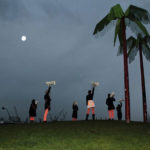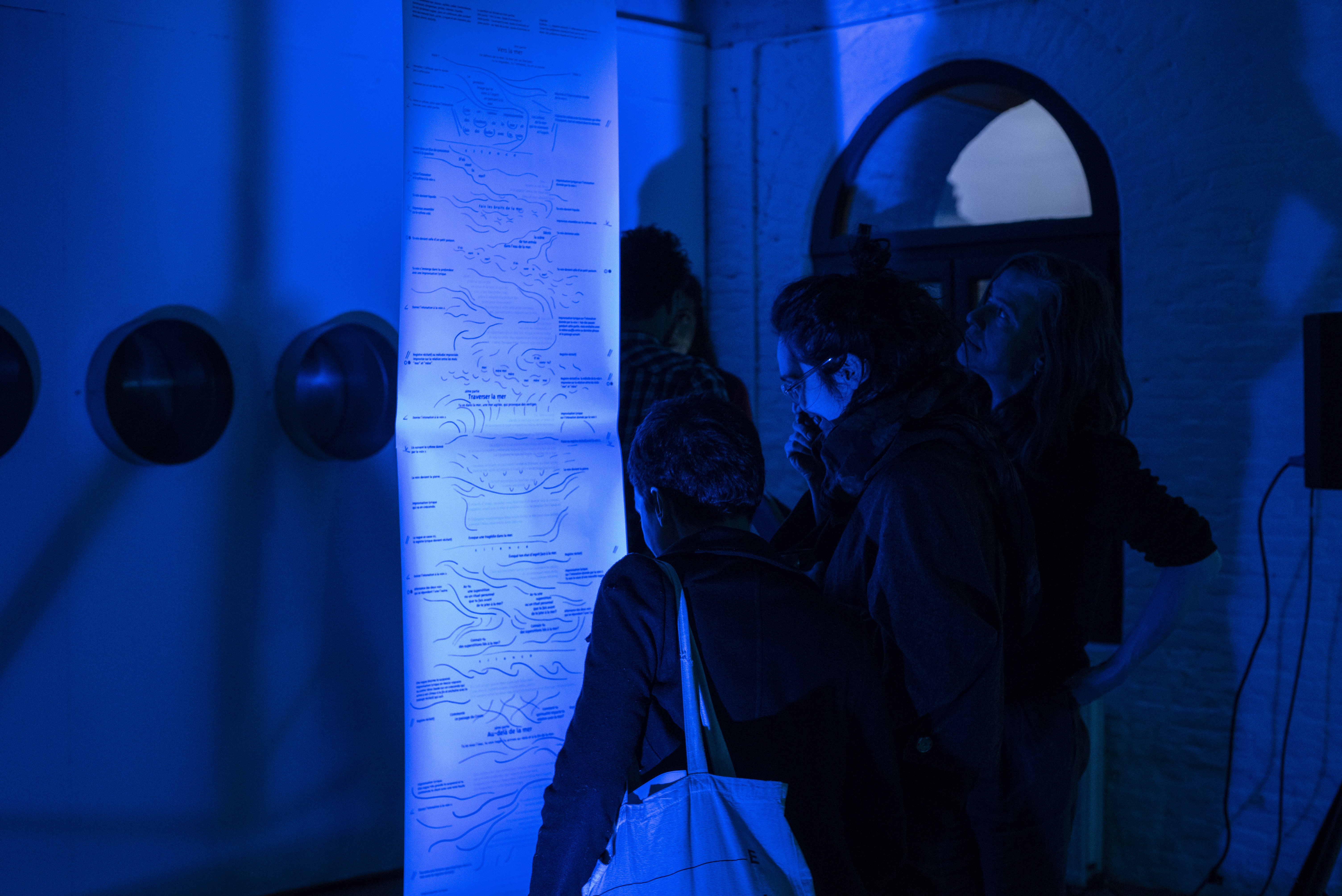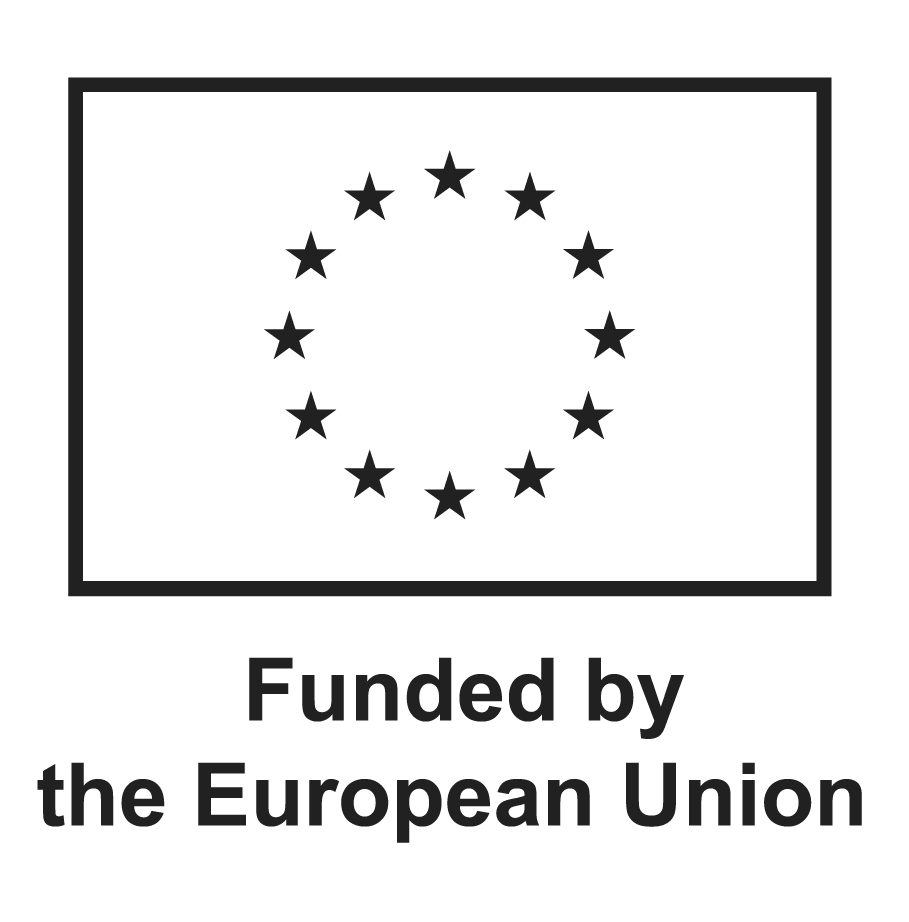

Tuesday, February 27 – KASK Miry Concert Hall (Ghent) | Moderator: Chiara Nuzzi
Will you attend the symposium? Registration is not mandatory, but recommended. Let us know here if you can come.
10h – 13h: the public and the social
Carolyn Chen – Music in Social Spaces
In social spaces outside of the concert hall, physically mobile performing bodies lend themselves to social fluidity, reconfiguring audience-performer roles, and highlighting spatially designed structures of power. I will present a few pieces for public spaces open to participants regardless of musical training, and discuss listening dynamics particular to their social circumstances. Examples include pieces for supermarket, human wind-chimes, rolling marbles, and a ballet for small blinking lights. In an art world context, historical precedents include Fluxus, game pieces by Christian Wolff and John Zorn, the Situationist dérive, Augosto Boal‚’s Theater of the Oppressed, and sound walks by Janet Cardiff, Christina Kubisch, Ben Carson, and Max Neuhaus. Other influences include children’s games and the Taoist nature philosophy of becoming one with the environment. I address the aesthetics of music in social spaces in relation to these influences as well as concepts of competition, leaderless resistance, disruption, and cooperation.
David Helbich – No Music – earpieces: Listening to our own hearing
Helbich’s collection of earpieces‚tries through different means and set ups to trigger a musical experience without any music being played back. The key is a guided self-performance of the audience, an intro-active situation, that at the same time gives back the agency of the event to the individual audience members. The set-ups vary from public audience-rehearsals and audio guides to simple DIY-notations in the form of score-books and posters. For this occasion, Helbich will present a mix of thoughts and exercises.
Brandon LaBelle – Poor Acoustics
Extending from notions of precarity, Poor Acoustics, considers how sound and listening weaken us, making us vulnerable to the intensities of worldly contact and each other. By reflecting upon particular experiences of sound and listening, the issue of participation will be put into question, drawing attention to interruption, silence, and overspeaking as indicative of a sonic relationality. Accordingly, weakness is posed as a state by which to foster new formations of social solidarity and self-organisation, where participation requires if not demands a poor acoustics.
14h – 17h: activism and politics
Edyta Jarzab – Voice of Resistance
Is the possibility of amplifying the voice a dispensation reserved explicitly for ruling powers? And how can singing and shouting be an expression of consensus and audible resistance against an amplified voice of authority? Based on her research into the sonic-space of protest in Poland over the past two years – a field in which she is highly active – Jarzab looks at the various vocal strategies used in the grassroots political actions in which she has been involved – a practice of gathering voices and exercising loud unison.
Anna Raimondo – Gender perspectives and urban geography
Nourished by her recent theoretical and artistic research, Raimondo attempts to remap and reflect on cities through a perspective of gender. The presentation focusses particularly on the city of Brussels, by showing the results of a collective, workshop-based, urban drive by women. In this workshop, the question evolved: what is a women friendly place within urban space? Challenging the assumed neutrality of ‘the public sphere’, Raimondo’s presentation uses recordings and observations from this workshop as a way to talk about how it feels to be a woman in an urban context, and what possibilities may be present to provoke and activate public space.
Jaume Ferrete – Your Father Is Speaking with My Father’s Voice
Synthetic voices work as a representation of our own voices and, consequently, as a performing index of those techniques and discourses that our voices are practice and product of. Yet synthetic voices are not solely representations of our voices; they equally are our voices. As they increasingly partake in similar genealogies of repetition, both the voices we understand as our own and those of the devices we built seem to be reproducing or quoting one another. It is not entirely clear who is speaking.
Your Father Is Speaking with My Father’s Voice takes on a possible political history of synthetic voices, starting with an encounter between the daughter of Stephen Hawking, and the daughter of Dennis Klatt, the engineer who, using recordings of his own voice, developed the voice that Hawking himself uses.




 Sebastian Dingens - WALKS
Sebastian Dingens - WALKS

 Pavel Tchikov 29/11/23
Pavel Tchikov 29/11/23

 Nika Son - Scatter
Nika Son - Scatter



